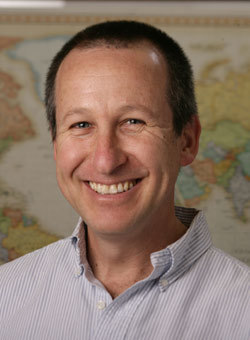
Today’s summit at the White House with the Israeli prime minister, Palestinian president and President Obama is important, not because it would lead to a Palestinian-Israeli peace deal -very few believe that,” says Asher Kaufman, associate professor of history and peace studies at the University of Notre Dame, “but because the talks that will be launched soon thereafter would force the parties to officially present their positions on the bones of contention: mutual recognition, boundaries, Jerusalem, refugees, security and water, among others.”
The Palestinians are divided between Hamas in Gaza and the Palestinian Authority in the West Bank, and Kaufman, who specializes in the Arab-Israeli conflict, says in Israel, the current coalition government is the most right-wing Israel has ever had.
“Any progress in the negotiations could lead to its break-up,” he says. “The talks could bring into political crisis both communities and could reveal the extent of seriousness of the parties to reach a compromise.”
Beyond the disagreements over core issues, Kaufman says there are pressing problems that can only be addressed domestically by Israelis and Palestinians themselves, so launching the peace talks could potentially do that as well.
“The talks could expose the question of feasibility of reaching an agreement in this day and age,” he says. “Discussing borders is an important part of the negotiations, but it could only be effective if there is genuine agreement on both sides that the way to resolve the conflict is through territorial compromise. Right now, there are strong Israeli and Palestinian forces that disagree even over this issue.”
A member of the Notre Dame faculty since 2005, Kaufman previously taught at Hebrew University in Jerusalem and served as a research fellow at the Harry S. Truman Research Institute for the Advancement of Peace, leading its Middle East Unit.
Media Advisory: Kaufman’s comments may be used in whole or in part. He is available for interviews and can be reached at 574-631-8213 or kaufman.15@nd.edu.